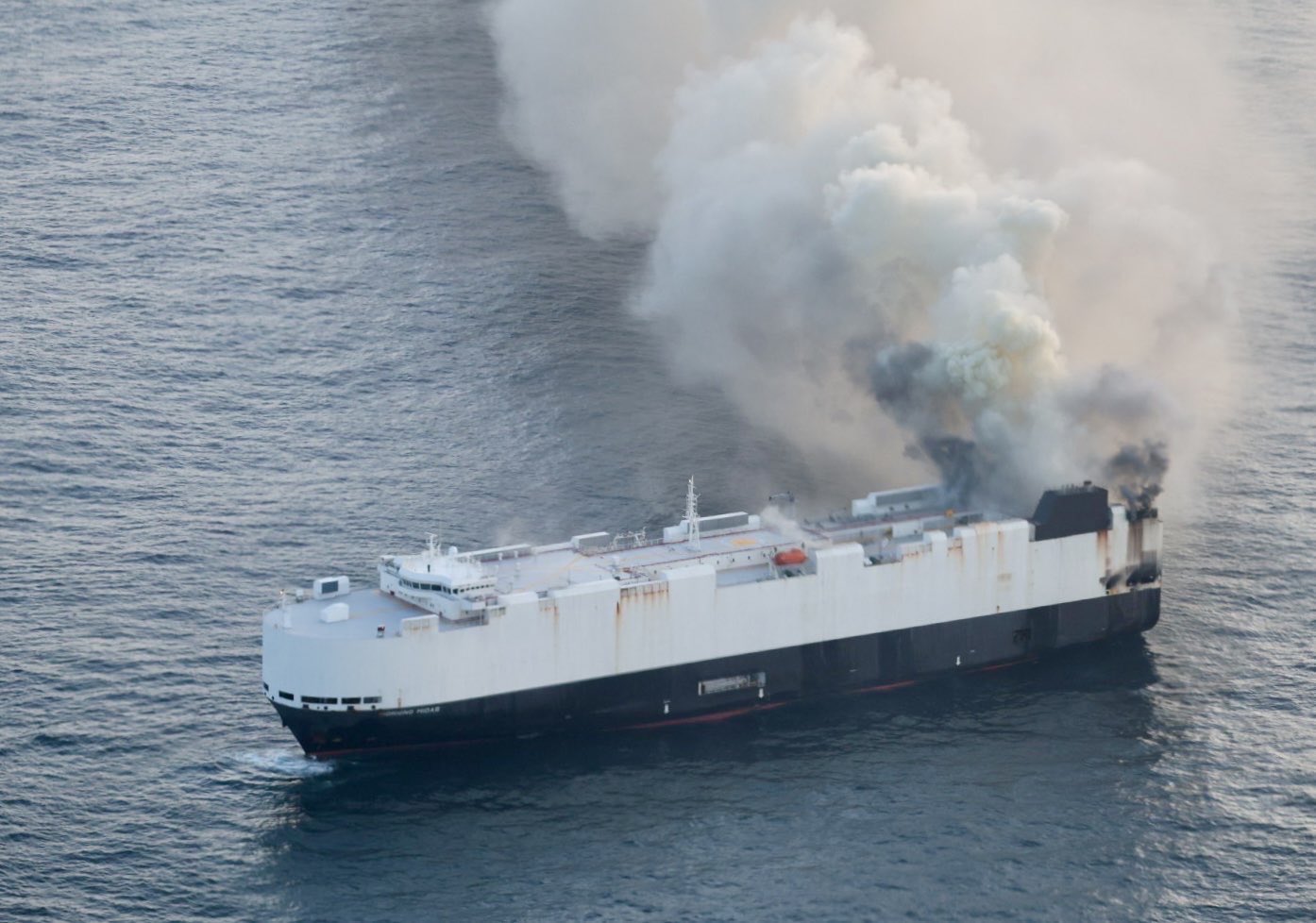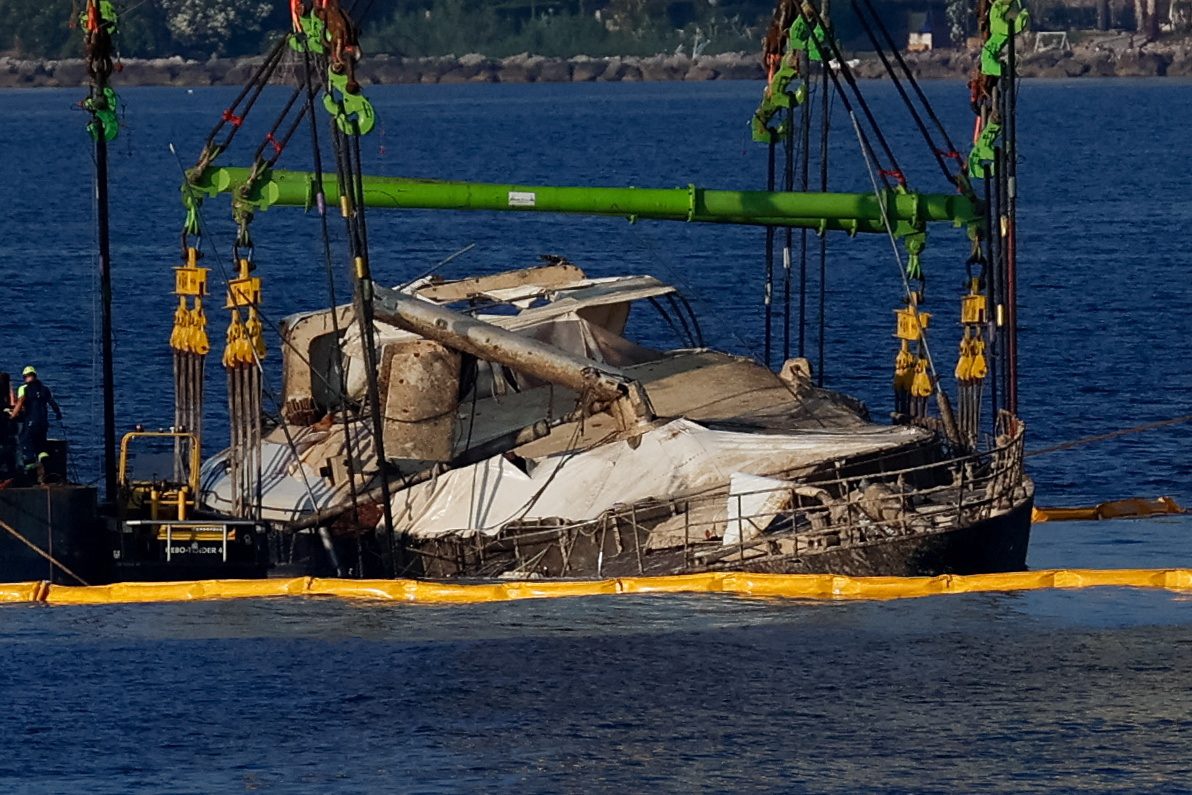The salvage team on the Panama-flagged cargo vessel, the MV Ultra Galaxy, is anxiously awaiting a week-long ‘good weather window’ to prepare for the removal of the vessel’s remaining fuel and oil. Meanwhile, determining why the now wrecked vessel ended up beached on the west coast of South Africa remains a priority.
The Ultra Galaxy, a 124.56-meter-long vessel built in 2008, was abandoned on July 9 after developing a severe list while traveling from Malaga, Spain to Dar es Salaam, Tanzania. It later grounded on South Africa’s west coast and broke into four sections. All 18 Filipino crew members were rescued. The incident comes amid increasing maritime traffic around the Cape of Good Hope, as more ships reroute to avoid Houthi attacks in the Red Sea.
The South African Maritime Safety Authority (SAMSA) confirmed that it has begun assisting Panama maritime authorities in investigating the incident. SAMSA Chief Operations Officer (COO) Sobantu Tilayi confirmed that Panama maritime authorities had already launched the investigation and had arrived in South Africa to interview the 18-member crew.
As the investigation into the cause of the grounding of the Ultra Galaxy formally gets underway, a salvage team from Smit Salvage South Africa, led by Salvage Master Rudolph Punt, is awaiting favorable weather conditions to locate low-sulphur fuel and oils in the grounded vessel’s underside tanks for extraction.
In an on-site media briefing, Punt described the inclement weather as a major hindrance to the removal process. The team needs to stabilize the wrecked vessel, locate the fuel-laiden tanks, and heat the fuel and oils to about 50 degrees Celsius before transferring them to a Platform Supply Vessel (PSV), a process that takes up to 48 hours.
Since arriving at the site two weeks ago, the team has managed to extract about eight cubic meters of oil, but harsh weather conditions have hampered further efforts. On July 27, the vessel broke into four pieces, causing two tanks to breach and spill tons of fuel and oil into the sea and onto the beach.
A Spill Tech environmental clean-up team is currently working to locate and remove the vessel’s debris and spilled fuels. The company’s Director for Environment, Gareth Goosen, said they were well-prepared for the task, despite not knowing the full scale of the spill and debris.
The local community, particularly the youth, has been actively involved in the cleanup effort. Sibusiso Ngema, Spill Tech’s director for commercial and human resources, reported that within hours of the vessel breaking up, 231 local people, mostly youth, were engaged in cleaning up the beach area. An additional 400 individuals are on standby for further clean-up efforts.

 Join The Club
Join The Club










